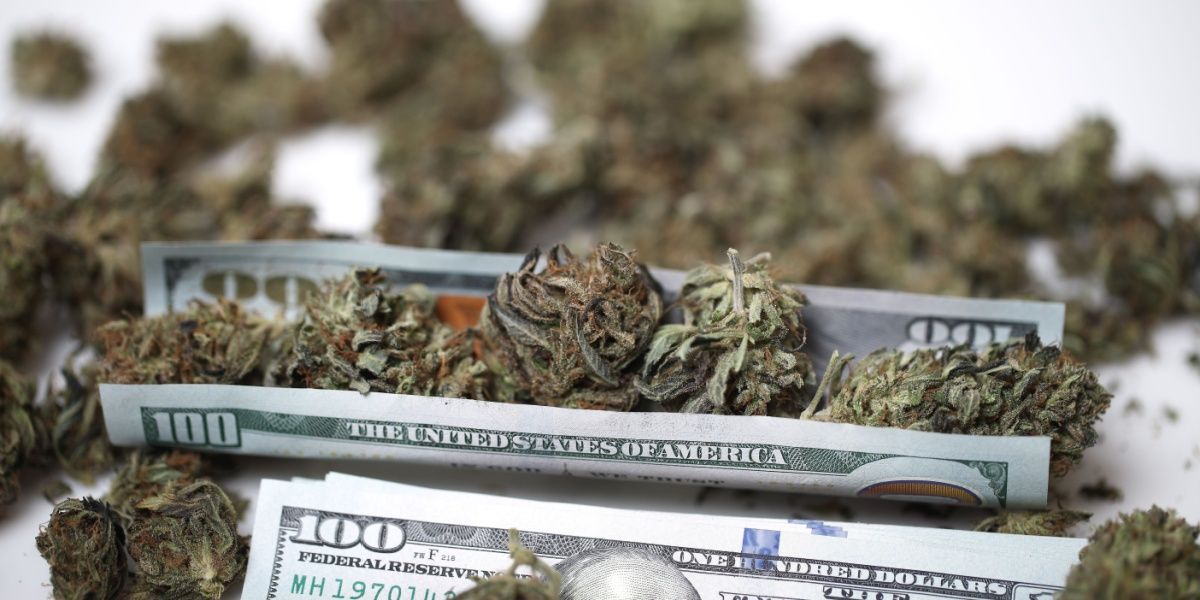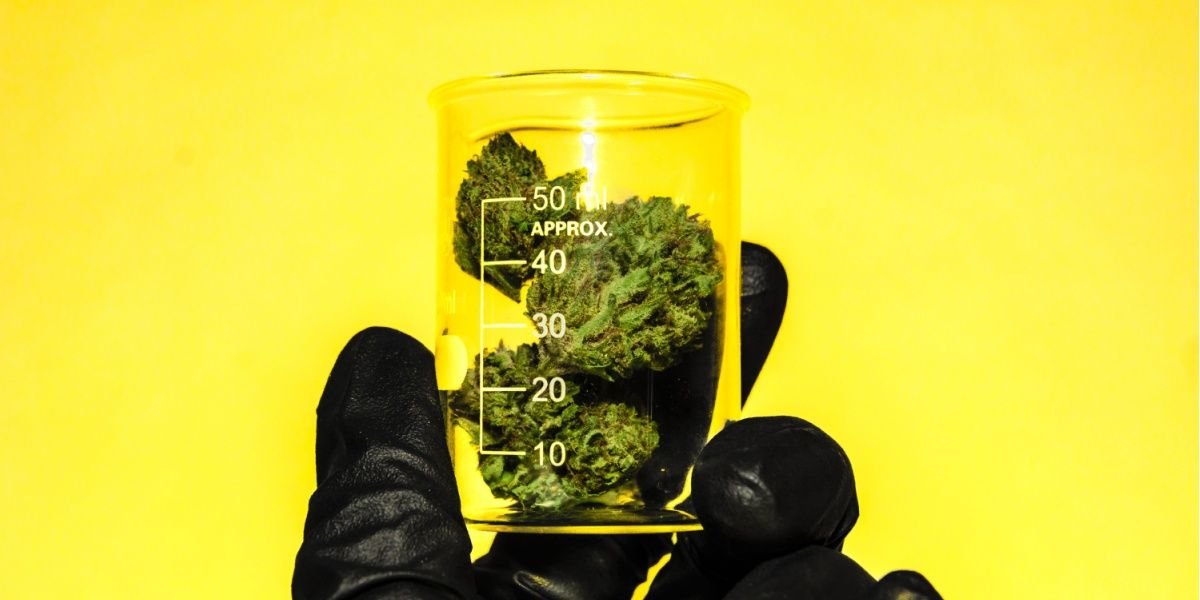Marijuana is often viewed as a safe drug, but some people still abuse it, and it is even possible to develop a dependence on it. The signs of cannabis use disorder can be difficult to detect, especially as more people turn to more discrete methods of using the substance (i.e. vaping, edibles, tinctures and oils, etc.). This article will provide some of the warning signs that can indicate a person is abusing marijuana, including the signs of marijuana use disorder.
- While some people still smoke the plant form of marijuana, more people also use electronic vape, oils, and edible forms of the substance, which can be harder to detect
- Behavioral signs of marijuana abuse include: anxiety or paranoid thinking, impaired judgment or decision making, and seeming slow to respond
- Physical signs of marijuana abuse include: lack of energy, bloodshot eyes (red eyes), smelling like cannabis (pungent, skunk-like odor)

Warning signs of marijuana use
Marijuana use has become more socially acceptable, and in a growing number of states is even legal to purchase and use medically or recreationally. The ways in which marijuana is used have also changed. While some people still smoke the plant form of marijuana, more people also use electronic vape, oils, and edible forms of the substance, which can be harder to detect.
Below are some of the common signs and indicators of marijuana use, including those which may be present in people who ingest THC (the psychoactive chemical present in marijuana) in ways other than smoking the plant form of the drug:[1][2]
Physical signs
- Increased appetite or weight gain
- Sleepiness, drowsiness, or seeming out of it
- Lack of energy
- Bloodshot eyes (red eyes)
- Smelling like cannabis (pungent, skunk-like odor)
- Dry mouth or needing to drink a lot more
- Dizziness or loss of coordination
- Increased heart rate
- Finding pipes, bongs, or other devices used to smoke marijuana
- Finding plastic bags with trace amounts of marijuana
- Smelling marijuana when a person vapes or uses an electronic cigarette
- Finding wax/honey/amber substances (shatter/cannabis concentrate)
- Finding small candies, gummies, or edibles that contain THC
- Smelling smoke or marijuana odors in a person’s car or home
- Finding vape pens containing delta-8 THC or another variant
Behavioral signs
- Lack of motivation or seeming lethargic
- Impaired memory or slower thinking and reaction time
- Anxiety or paranoid thinking
- Impaired judgment or decision making
- Moving slower or seeming slow to respond
- Uncontrollable laughing or euphoric mood
- Moodiness or strange affect
- Psychosis (seeing or hearing things that aren’t there)
- Confusion or disorientation
Is marijuana abuse dangerous?
While there are some documented health benefits associated with marijuana use (for people with specific conditions), it is not true to say that marijuana is completely safe. While it is generally believed to be safer than some other ‘hard drugs’ like heroin, cocaine, or meth, there are still some potentially harmful effects that can result from marijuana use. Check out our guide on dangerous drugs for more information.
This is especially true for children and teens, people with existing mental health conditions, and chronic, long-term, heavy users. Mixing marijuana with other drugs also increases the likelihood of experiencing harmful effects. Some of the potential negative effects and risks associated with marijuana use include:[1][2][3]
- Breathing problems, asthma, and increased lung cancer risk (for smokers)
- Increased risk for heart problems
- Risks to unborn children (for pregnant people using marijuana)
- Nausea and vomiting
- Paranoia, psychosis, and increased anxiety
- Depressive symptoms including sadness, apathy, loss of interest, energy and motivation
- Slower cognitive processing and thinking skills
- Loss of motor coordination making accidents/injuries more likely
- Possibility for legal consequences (if illegal in your state)
- Possibility for job loss (if drug tested at work)
- Relationship conflicts and problems
Several studies have indicated that marijuana abuse, especially of high potency or synthetic strains, may have a direct correlation to developing psychotic disorders such as schizophrenia, depression, and anxiety. [1] Young people who use also may be more likely to develop cognitive problems and delays later on in life. Because marijuana impairs judgment, people who use the drug can also make poor or impulsive decisions that endanger them or other people.
It is also possible for regular or heavy users to become addicted or to develop what is called marijuana use disorder. The signs of marijuana use disorder include experiencing two or more of the following symptoms:[3]
- Urges or cravings to use the substance
- Having a desire to stop or limit use of the substance without being able to quit or reduce use
- Extending use or increasing the amount past what it is meant to be
- Using the substance even when it compromises safety
- Continuing to use the substance even though it’s causing relationship problems
- Neglecting other parts of life such as work or school due to substance use
- Spending a lengthy amount of time obtaining, using, or recovering from the substance
- Neglecting social, recreational, or occupational activities or opportunities due to the substance
- Tolerance or needing more of the drug to get the desired effects
- Withdrawal (uncomfortable physical or psychological effects when cutting back or stopping)
- Using the substance despite having a condition that may have been caused or worsened by it
Consequences of marijuana abuse
Some people who abuse marijuana experience short or long-term consequences and problems as a result. While not everyone will experience these effects, it is possible to develop the following issues and problems because of abusing marijuana.[2]
While intoxicated
- Anxiety or paranoid thoughts
- Elevated heart-rate
- Lack of coordination
- Impaired judgment
- Impaired short-term memory
Long-term (non-permanent)
- Issues sleeping
- Inability to focus
- Lack of coordination
- Reduces finances due to the cost of marijuana
- Weight gain
- Worsened mental health
Long-term (potentially permanent after chronic use)
- Psychosis
- Loss of IQ (reported in adolescents only)
- Bronchitis or other respiratory problems
- Marijuana addiction
- Increased risk for mental health conditions
- Increased risk for other addictions
Recognizing marijuana addiction
Despite its growing popularity and acceptance in modern society, marijuana still holds the potential for abuse, dependence, and addiction. This can lead to people abusing marijuana when they should be focusing on other tasks such as work, ignoring other responsibilities in order to get high, having money problems due to buying more marijuana than they can afford, and craving the substance when they aren’t using it. The hallmark sign of addiction is continuing to use a drug even after it is causing problems or impairments to your physical or mental health, relationships, work, or other important areas of life.
First steps to overcoming a marijuana addiction
As with all forms of addiction or substance use disorder, the first step to recovery is to recognize that there is a problem. If you think that your marijuana use has become an issue but are not sure if you have a problem, speak to a doctor about the possibility of treatment, or consider scheduling an appointment with licensed mental health or addiction professionals. During a formal substance abuse evaluation, a clinician can help you determine whether or not you are struggling with marijuana use disorder and if so, provide options for treatment such as inpatient treatment for marijuana use disorder.




-guide-detail.jpg?v=1756808779)